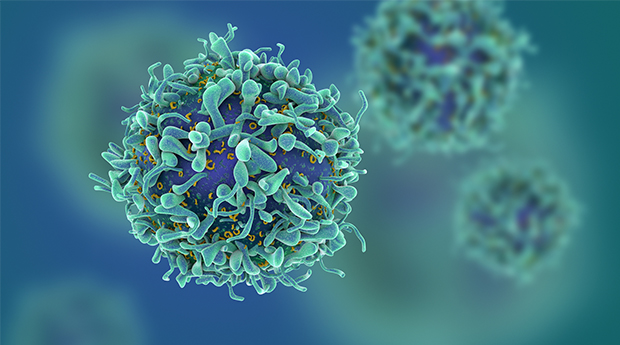On average, humans suffer one fatal malignancy for each 100 million billion cell divisions. Cancer is bad luck in every possible sense of the term.
平均來說,每10億億次細胞分裂中,人會得一次致命的疾病。癌癥無論從任何意義上說都是運氣不好的表現。
The wonder of cells is not that things occasionally go wrong, but that they manage everything so smoothly for decades at a stretch. They do so by constantly sending and monitoring streams of messages—a cacophony of messages—from all around the body: instructions, queries, corrections, requests for assistance, updates, notices to divide or expire. Most of these signals arrive by means of couriers called hormones, chemical entities such as insulin, adrenaline, estrogen, and testosterone that convey information from remote outposts like the thyroid and endocrine glands. Still other messages arrive by telegraph from the brain or from regional centers in a process called paracrine signaling. Finally, cells communicate directly with their neighbors to make sure their actions are coordinated.
細胞的奇妙之處不在于事情偶爾會出問題,而在于它們在幾十年的時間里使人體內的一切運轉正常。為此,它們不停發送和監控來自全身各個部位的信息——滴滴答答的信息:指令、質問、修正、救助、更新、分裂或死亡的通告。所有這些信息大多數是通過名叫荷爾蒙的化學實體來傳遞的,如胰島素、腎上腺素、甲狀腺素、睪丸寒從甲狀腺和內分泌腺。還有一些信息是從大腦或區域中心傳輸過來的。這個過程叫做“發出旁分泌信號”。最后,細胞直接和它的左鄰右舍進行交流,以確保它們行動一致。

What is perhaps most remarkable is that it is all just random frantic action, a sequence of endless encounters directed by nothing more than elemental rules of attraction and repulsion. There is clearly no thinking presence behind any of the actions of the cells. It all just happens, smoothly and repeatedly and so reliably that seldom are we even conscious of it, yet somehow all this produces not just order within the cell but a perfect harmony right across the organism.
細胞最引人注目的特點是,它們總是以一種瘋狂的速度處于漫無目的的運動和無休無止的撞擊狀態中,而驅使它們這么做的無非是吸引和排斥的基本法則。細胞的任何運動都無理性可言。所有的運動都平靜地、重復地、可靠地發生著,因此我們甚至很少意識到。然而,這一切不僅很好地維持著細胞內的秩序,而且使得有機體保持在一種完美的和諧狀態中。












